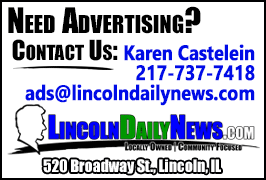Indonesian coal industry risking a tough transition as demand declines,
report says
[June 17, 2025] By
ANIRUDDHA GHOSAL
HANOI, Vietnam (AP) — Indonesia’s coal industry is facing mounting
pressure and should diversify as China and India, its biggest customers,
cut back on imports of the heavily polluting fossil fuel, according to a
report from a Jakarta-based energy thinktank, Energy Shift.
The report released Tuesday says that the industry, which accounts for
about 3.6% of Indonesia's economic activity and employs tens of
thousands of people, needs to shift toward cleaner energy now or risk
being forced into a costly transition later.
Indonesia is the world’s biggest exporter of coal, which is central to
its economy, generating tax revenues and jobs. So the expected long-term
decline in demand presents a unique challenge for the country of some
280 million. Indonesia’s coal production is still rising, hitting a
record 836 million tons in 2024, nearly 8% more than the year before.
The industry also relies heavily on just a few buyers, with China and
India buying nearly two-thirds of Indonesia's coal exports in 2023.
China still relies on coal for more than half its electricity
generation. It accounted for 41% of global coal imports in 2024, or
nearly 543 million tons. But more than 75% of the growth in demand last
year was met by clean energy.

India’s coal imports fell 8.4% to 183.42 million metric tons from April
to December 2024, down from 200.19 million metric tons in the same
period a year earlier, government data shows. The drop is part of
India’s push to reduce import dependence by ramping up domestic coal
production. Imports for industries like cement, steel and aluminum that
buy coal at market rates declined 12% while imports for thermal power
plants fell even more sharply, down 29.8%.
Indonesia's coal exports fell to a three-year low in January-April of
this year, a shift that may signal a longer term decline, experts say.
“These are signs that Indonesian coal miners have to start taking
seriously as well,” said Hazel Ilango of the Energy Shift Institute.
[to top of second column] |

Women sit on a hill overlooking the Suralaya coal power plant in
Cilegon, Indonesia, Jan. 8, 2023. (AP Photo/Dita Alangkara, File)
 There are other risks too. Most
Indonesian coal companies are tightly controlled by insiders —
owners, executives, and board members — who hold about 75% of
company shares on average, according to the report. Regulations such
as domestic supply rules and high royalties also limit profits,
while access to global financing remains restricted.
The private sector and investors are generally uninterested in
long-term transition plans and are more focused on immediate
profits, while government policies remain inconsistent, said Putra
Adhiguna of the Energy Shift Institute.
Experts say that the country’s coal policy is riddled with
contradictions. It has pledged to cut emissions and transition to
clean energy, but it continues to expand coal production and approve
new plants. Domestic subsidies keep coal cheap, but abrupt export
bans have disrupted global markets. Meanwhile, the state utility
plans to retire coal plants early under a $20 billion transition
deal — even as new ones tied to the industry are still being built.
As major coal importers like China and India cut imports to boost
their energy security, Indonesia’s coal sector needs to plan ahead,
said Jordan Lee, an energy transition expert at the Tony Blair
Institute for Global Change in Jakarta.
“The reason I say that is basically if you look at what happened
with some big oil companies that have tried something similar, we
have seen the market not respond too positively,” he said.
All contents © copyright 2025 Associated Press. All rights reserved
 |